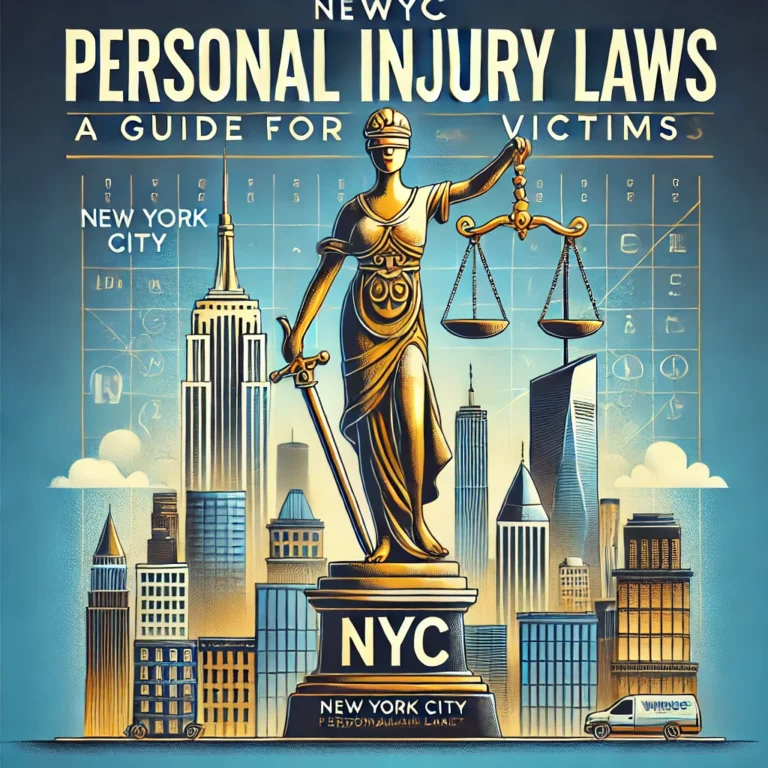Lawyer or attorneys practice in a variety of fields, including family law, commercial law, personal injury, criminal defense, and others.

If you are pursuing a personal injury case and considering settlement, it is critical that you understand the procedure. so before you agree to a settlement you should ask your attorney certain questions to ensure you make an informed decision. Here are some crucial settlement questions to ask your attorney.
Questions to ask attorney about settlement

1. What are the strengths and weaknesses of my case?
2. What is the likelihood of winning in court versus settling?
3. What is the potential value of my case if we go to trial versus if we settle?
4. What are the terms of the settlement?
5. Can the settlement agreement be negotiated, and if so, how?
6. How long will it take to negotiate a settlement?
7. What are the potential tax implications of the settlement?
8. What are the potential consequences of accepting or rejecting a settlement offer?
9. What happens if the other party breaches the settlement agreement?
10. Can the settlement agreement be made confidential?
questions to ask your lawyer
1. What are the strengths and weaknesses of my case?
Understanding the strengths and weaknesses of your case is crucial when deciding whether to settle or go to trial. Your attorney can provide valuable insight into the strengths and weaknesses of your case to help you make an informed decision.
- What evidence supports my case?
- Are there any legal issues or potential obstacles that could weaken my case?
- How have similar cases been resolved in the past?
- What is the credibility of my witnesses or evidence?
- Are there any weaknesses in the other party’s case that could work in my favor?
By asking these questions, you can gain a better understanding of your case’s potential outcomes and whether settling is in your best interest.
2. What is the likelihood of winning in court versus settling?
It’s critical to comprehend your alternatives for resolving a legal disagreement when one arises. One such option is settling out of court. Settling allows both parties to come to an agreement without going through the time and expense of a trial. However, before agreeing to a settlement, it’s important to understand the likelihood of winning in court versus settling.
- Ask your attorney about the strength of your case and the potential weaknesses.
- Discuss the evidence and witness testimony that could be presented in court.
- Consider the judge or jury who may be hearing the case and their potential biases or preconceived notions that could influence the verdict.
- Evaluate the potential costs of going to trial, including legal fees, court costs.
- Discuss the potential benefits of settling, such as avoiding the risk and uncertainty of going to trial, and the potential for a quicker and less expensive resolution.
Understanding the likelihood of winning in court versus settling is crucial in making an informed decision about how to proceed with a legal dispute. Your attorney can provide valuable insight and advice to help you make the best decision for your specific situation.
Read More – What happens when you reject an insurance settlement offer
3. What is the potential value of my case if we go to trial versus if we settle?
When it comes to settling a legal dispute, one of the most important considerations is the potential value of your case. Understanding the potential value can help you make informed decisions about whether to accept a settlement offer or proceed to trial. Some key points to consider when discussing the potential value of your case with your attorney include:
- How much compensation you may be entitled to for damages or losses
- The cost of pursuing the case through trial, including legal fees and other expenses
- The potential risks and benefits of settling versus going to trial
- The strength of the evidence supporting your case and the likelihood of success in court
Your attorney can help you evaluate these factors and provide guidance on whether to accept a settlement offer or pursue the case through trial. It
4. What are the terms of the settlement?
When considering a settlement, it is essential to understand the specific terms being offered. The terms of the settlement will outline what actions each party must take and what they are entitled to receive in return. Some important questions to ask your attorney about the terms of the settlement include:
- What are the specific monetary terms of the settlement, including any payments, fees, or penalties?
- Are there any non-monetary terms, such as a requirement to make changes to your business practices or to provide certain goods or services?
- Will the settlement agreement include a release of liability for both parties?
- How will any remaining disputes or outstanding issues be resolved under the settlement agreement?
- Are there any confidentiality provisions that will be included in the settlement agreement?
- What are the deadlines for compliance with the settlement terms, and what are the consequences of noncompliance?
Understanding the terms of the settlement is critical to ensuring that you receive a fair and reasonable agreement. Your attorney can help you evaluate the terms of the settlement and negotiate any changes that may be necessary to protect your interests.
5. Can the settlement agreement be negotiated, and if so, how?
When it comes to settling a legal dispute, it’s essential to understand the terms of the agreement and make sure they are favorable to you. One way to ensure this is by negotiating the settlement agreement. Here are some bullet points to consider when asking your attorney about negotiating a settlement:
- What are the areas of the settlement agreement that can be negotiated?
- Can we negotiate the amount of the settlement?
- Can we negotiate the timeline for payment?
- Can we negotiate the terms of the release or waiver of claims?
- How can we negotiate without risking the settlement offer being withdrawn?
- What are some potential compromises that can be made to reach a settlement?
- Can we involve a mediator or third-party negotiator to assist with the negotiations?
- Are there any legal or ethical limitations to the negotiations?
- How can we ensure that the negotiated settlement is legally binding and enforceable?
By asking these questions, you can better understand the negotiation process and ensure that the settlement agreement is fair and reasonable for you.
Read More – 10-Step Guide: How to Spot a Fake Law Firm
6. How long will it take to negotiate a settlement?
When negotiating a settlement with an attorney, it’s essential to have an understanding of the time frame involved. This can vary depending on the complexity of the case and the willingness of the parties to reach an agreement.
It’s important to ask your attorney questions to get a better sense of the timeline and to manage your expectations accordingly. Here are some bullet points to consider when asking your attorney about the timeline for negotiating a settlement:
- How long does it typically take to negotiate a settlement in cases similar to mine?
- What factors can impact the timeline for negotiating a settlement?
- Are there any deadlines or time-sensitive issues that we need to be aware of?
- Will we need to engage in multiple rounds of negotiations, or do you anticipate a relatively straightforward process?
- How often will you update me on the progress of negotiations?
- Are there any steps we can take to expedite the negotiation process?
- What happens if we’re unable to settle within a reasonable time frame?
- What are the potential costs associated with a longer negotiation timeline?
By asking these questions, you can gain a better understanding of what to expect during the settlement negotiation process and ensure that you’re prepared for any potential delays or challenges that may arise.
7. What are the potential tax implications of the settlement?
When it comes to legal settlements, it’s important to consider potential tax implications. Depending on the type of case and the settlement amount, the IRS may view the settlement as taxable income.
To ensure you understand the tax consequences of a settlement, it’s important to discuss this with your attorney. Here are some questions you may want to ask about the tax implications of settlements:
- Will the settlement be taxable income?
- If so, what portion of the settlement is taxable income?
- Are there any exceptions or exclusions that may apply to this settlement?
- Will the settlement impact my tax bracket or cause any other tax issues?
- Do I need to report the settlement to the IRS, and if so, how?
- Are there any steps I can take to minimize the tax consequences of the settlement?
By understanding the tax implications of a settlement, you can make informed decisions about the settlement offer and avoid any unexpected tax bills down the line.
8. What are the potential consequences of accepting or rejecting a settlement offer?
When it comes to settling a legal dispute, one crucial factor to consider is whether to accept or reject a settlement offer. This decision can have significant consequences, both financially and legally. Therefore, it’s essential to ask your attorney some questions to understand the potential outcomes of accepting or rejecting a settlement offer.
- What are the financial implications of accepting or rejecting a settlement offer?
- Will accepting a settlement offer prevent me from pursuing legal action in the future?
- Is there a chance I could receive a higher payout by taking the case to court?
- Are there any legal risks associated with rejecting a settlement offer?
- What are the potential time and cost savings associated with accepting a settlement offer?
- Can accepting a settlement offer impact my reputation or future business opportunities?
By asking these questions and considering the potential outcomes, you can make a well-informed decision about whether to accept or reject a settlement offer. Your attorney can provide valuable guidance and help you weigh the pros and cons of each option.
9. What happens if the other party breaches the settlement agreement?
If parties in a legal dispute agree to settle their differences, they are expected to follow the terms of the settlement agreement. However, there are situations where one party fails to fulfill their obligations, leading to a breach of the settlement.
In such cases, the party that did not breach the agreement has legal options available to them. Here are some important points to understand about what happens if the other party breaches the settlement agreement:
- Breach of a settlement agreement can occur in various ways, such as failing to make payments, failing to perform certain actions, or disclosing confidential information.
- The non-breaching party must first provide written notice to the breaching party of the breach and allow them a reasonable amount of time to cure it.
- If the breach is not cured, the non-breaching party can file a lawsuit seeking damages or specific performance.
- Damages are a monetary award designed to compensate the non-breaching party for the losses they suffered as a result of the breach.
- Specific performance is a court order requiring the breaching party to perform the specific actions outlined in the settlement agreement.
- Injunctive relief is a court order that prohibits the breaching party from continuing to violate the settlement agreement.
- It’s important to note that the specific legal remedies available will depend on the terms of the settlement agreement and the laws of the jurisdiction where the dispute is taking place.
- It’s important to consult with an experienced attorney if you believe the other party has breached the settlement agreement to understand your legal options and protect your rights.
In conclusion, a breach of a settlement agreement can have serious consequences for both parties.
Read More – How To File A Personal Injury Claim Without A Lawyer – What You Need To Know
10. Can the settlement agreement be made confidential?
Settlement agreements are a popular way to resolve legal disputes without going to court. Typically, these agreements involve one party paying a specific amount of money or agreeing to certain conditions in exchange for the other party dropping the legal case.
In some cases, the parties may want to keep the details of the settlement confidential. It’s important to understand whether such a confidentiality agreement is possible. Can the terms of the settlement agreement be kept confidential?
- Yes, settlement agreements can be made confidential in some cases, depending on the agreement between the parties involved.
- It is important to include confidentiality clauses in the settlement agreement before it is signed.
- The confidentiality clause should outline what information is considered confidential and how it should be treated.
- Parties should consider the benefits and drawbacks of making a settlement agreement confidential.
- Benefits of confidentiality may include privacy protection, avoidance of negative publicity, and avoiding future litigation.
- Drawbacks of confidentiality may include restrictions on what can be shared about the settlement, limitations on future business dealings, and difficulties in enforcing the agreement.
- It’s important to consult with a legal professional to understand the implications of making a settlement agreement confidential.
conclusion
Finally, the choice to make a settlement agreement confidential should be made after a thorough evaluation of the benefits and drawbacks, and it is critical to comprehend the confidentiality clause’s wording. Consultation with a legal professional can assist in ensuring that the agreement is fair and reasonable to all parties concerned.









